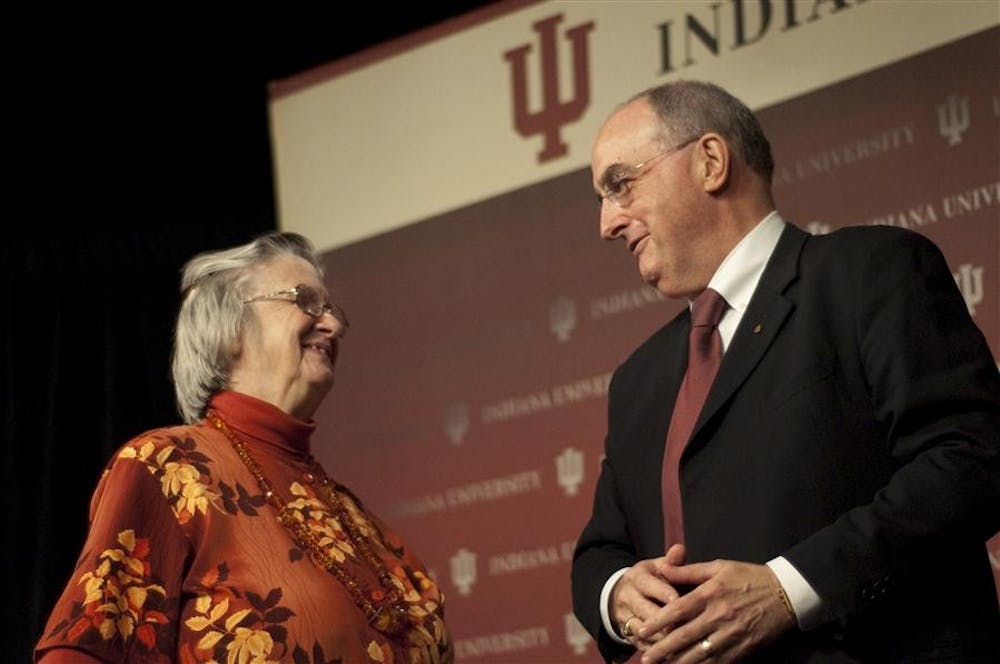IU professor Elinor Ostrom became the first woman to win the Nobel Memorial Prize in Economic Sciences on Monday.
Ostrom, who split the prize with University of California-Berkeley professor Oliver Williamson, was honored for her work in analyses of economic governance, or the way people exercise authority in economic systems.
“What a way to start a Monday morning,” Ostrom said at a press conference. “Your phone rings at 6:30 in the morning, and you wonder if there’s going to be a voice at the other end. I was very surprised that there was a real person on the other end, and it was from Stockholm.”
Ostrom, who came to IU in 1965 as a visiting assistant professor, helped found the Workshop in Political Theory and Public Policy with her husband, Vincent, in 1973.
She is now a professor in the Department of Political Science and the School of Public and Environmental Affairs. She was the first woman to lead the political science department in the early 1980s.
“IU could not be prouder, and this prize could not have gone to a more deserving person,” IU President Michael McRobbie said. “Everyone at IU congratulates her, as does everyone across Indiana. This is an even greater honor for Elinor as she is the first woman to win in a spectacular year for women.”
Ostrom became one of five women to win Nobel prizes this year – a record for women in an era when female researchers have considerably higher standing than when Ostrom started her academic career.
“If you have lived through the era that I’ve lived through, getting into graduate school was a challenge,” Ostrom said. “You can’t have received a Ph.D. in 1965 as a woman and not be deeply aware that ... advice that was given to me. They said, ‘why would you try for a Ph.D.?’”
Her work now centers around the relationship between governments, people and the resources they share.
Since her dissertation, Ostrom has worked on groundwater problems in California, where salt water from the sea has caused problems by seeping into drinking water sources. Other resources like forests and fish have also been the subject of her studies, which span from Bloomington to Africa and Asia.
“A lot of studies are just in the now,” Ostrom said. “Problems like deforestation, global change are because of short-term thinking rather than long-term thinking.”
That kind of long-term thinking showed Ostrom that sometimes locals have much better economic solutions than governments or faraway regulators. And it was her work on the local level, or the “commons,” that netted the prize.
In an official announcement, the Nobel committee said Ostrom “has challenged the conventional wisdom that common property is poorly managed and should be either regulated by central authorities or privatized.”
Instead, Ostrom concludes that locals will often regulate themselves in the name of sustaining resources, rather than overharvesting.
Ostrom’s work highlights the ever-changing nature of research, as her formal background is in political science, not economics.
But in the digital age, she said, research can often be about researchers from many different disciplines conferencing to find solutions.
“Can just a social scientist or just a forester address questions of how to stop deforestation? I’d say no,” she said. “But working together, really trying to understand lives of people who depend on those forests.”
IU professor receives honor for award Monday

Get stories like this in your inbox
Subscribe





